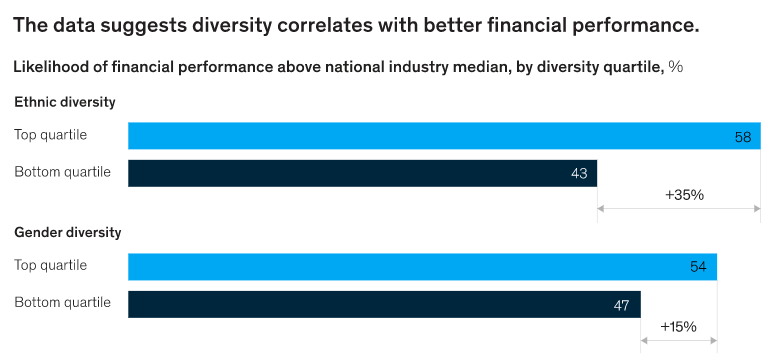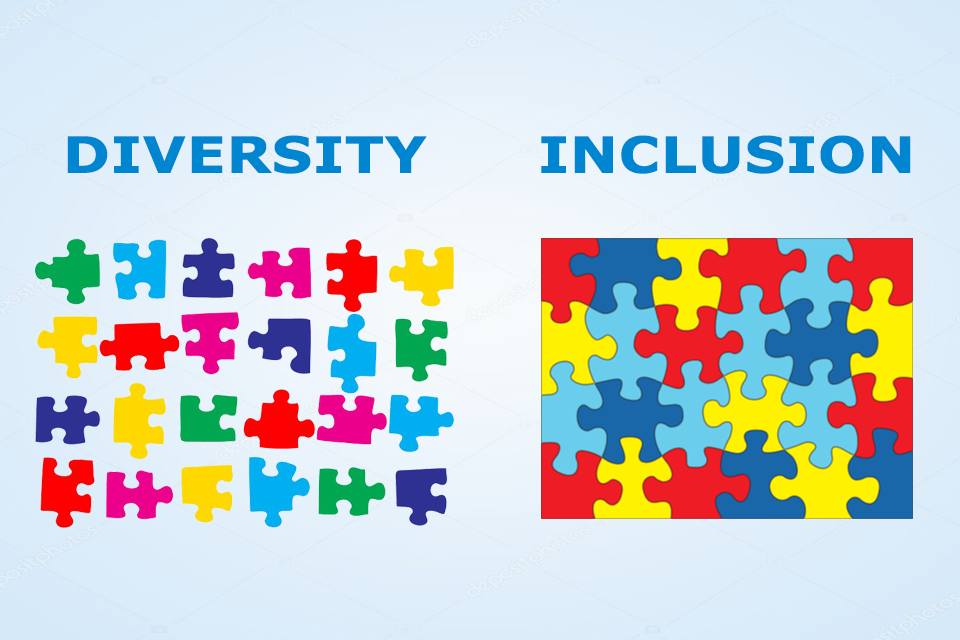This blog is part of a series from Director of Equality, Diversity and Inclusion, Sarah Guerra, where she will be addressing the ‘whole picture’ of EDI, why it is important, and how we go about making effective, systemic change.
We live in a complex, interconnected world. Within that there are so many influencing factors. Increasingly we see a greater understanding and acceptance that diversity is an asset for organisations and individuals. It fosters innovation, creativity and empathy in ways that are less likely in a homogeneous environment. If you haven’t already heard my AKC lecture it covers this in more depth.
In 2020, diversity is about more than gender, race and ethnicity. It now includes diverse religious beliefs, education, socio-economic backgrounds, sexual orientation, cultures and disabilities. Organisations recognise that, by supporting and promoting a diverse and inclusive workplace, they gain deep benefits.
The case for establishing a truly diverse workforce, at all organisational levels, grows more compelling each year. The moral argument is weighty enough, but the financial impact – as proven by multiple studies – makes this a must for success. I’ll skip through a few I am aware of, but these are just the tip of the iceberg!
There is substantial research to show that diversity brings many advantages to an organisation: increased profitability and creativity, stronger governance and better problem-solving abilities. Employees/students with diverse backgrounds bring to bear their own perspectives, ideas and experiences, helping to create organisations that are resilient and effective, and which out-perform organisations that do not invest in diversity.
The potential benefit to the UK economy from full representation of all individuals across the labour market through improved participation and progression is enormous. If we just looked at BME people this is estimated to be £24 billion a year, which represents 1.3% of GDP.
McKinsey identified in 2015 that companies in the top quartile for racial and ethnic diversity are 35% more likely to have financial returns above their respective national industry medians.
Research carried out by in 2017 with inclusion experts Equal Approach found there was a potential £15 return for every £1 invested in inclusion initiatives across the organisation.
A Boston Consulting Group study found that companies with more diverse management teams have 19% higher revenues due to innovation.
By the year 2025, 75% of the global workforce will be made up of millennials – which means this group will occupy the majority of leadership roles over the coming decade. This group has a unique perspective on diversity. While previous generations tend to view diversity through the lenses of race, demographics, equality and representation, millennials see diversity as a melding of varying experiences, different backgrounds and individual perspectives. They view the ideal workplace as a supportive environment that gives space to varying perspectives on a given issue.
The 2018 Deloitte Millennial Survey shows that 74% of these individuals believe their organisation is more innovative when it has a culture of inclusion. If we are looking to hire and sustain a millennial workforce, diversity must be a key part of our culture. When employees ‘think their organisation is committed to and supportive of diversity, and they feel included’, their ability to innovate increases by 83%
More than ever, flexibility and versatility are becoming the key to success for individuals, companies, and countries alike, and a culturally diverse environment is the best way to acquire these qualities. Assumptions need to be challenged, conversations need to be had and organisation culture needs to be updated so that the modern organisation can accurately reflect and support the population of its region.
Equality, Diversity and Inclusion cannot be a one-off or a set of initiatives. Promoting them in the workplace is a constant work-in-progress and they should be maintained and nurtured to guarantee effectiveness. Empathetic leadership is key to this transformation. For real change to happen, every individual leader needs to buy into the value of belonging – both intellectually and emotionally – and they need to work to make EDI part of everyone’s mindset and structurally unavoidable.
We must come together and be more engaged and vocal than ever before to promote the message of a diverse and tolerant society. The weight of evidence can no longer be ignored. As outlined, there is substantial research to show that diversity brings many advantages to any organisation, including increased financial sustainability, creativity, stronger governance and better problem-solving abilities. Those with diverse backgrounds bring to bear their own perspectives, ideas and experiences, helping to create organisations that are resilient and effective, and which outperform organisations that do not invest in diversity.

